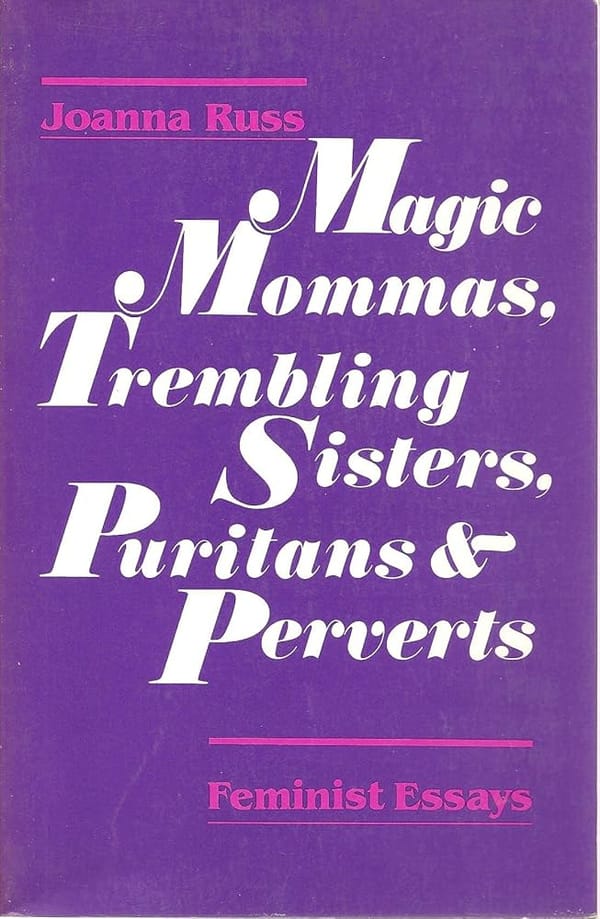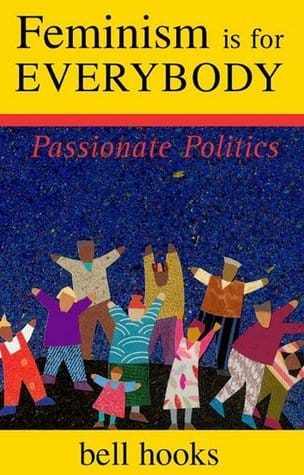Reading Circle meets every Monday at 4pm PST/7pm EST/12am UTC.
Reading Circle is a space for women to explore feminist literature as a group. Every week, we will read a short essay or excerpt of writing about feminist theory or women’s herstory, then discuss. Please read or listen to the text before each session, so we can come together for a thoughtful discussion!
About The Author
Gena Corea is one of the first feminist authors who began writing and researching reproductive technology and its impact on women, as well as the broader ways in which the medical establishment approaches, treats, and exploits women. Her book Hidden Malpractice: How American Medicine Treats Women as Patients and Professionals (1977) is among the earliest feminist analyses to describe what was then called medical patriarchy—what we now refer to as medical misogyny. Her later work, The Mother Machine: Reproductive Technologies from Artificial Insemination to Artificial Wombs (1985), offered a groundbreaking, in-depth feminist critique of how advancements in reproductive technology harm women and commodify their bodies. She has a large body of writing on these topics, and more.
Recording
You can listen to a recording of this week's reading here.
Text
You can read this week's text by following this link.
To read an abridged version, using the link, start on page 98/253 of the PDF and end at the bottom of page 101/253, on the phrase, "It is a large clientele."
You can also download a PDF version here:
To read an abridged version of this document, you can stop at the bottom of the page numbered 88, on the phrase, "It is a large clientele."
Key Concepts
Medical Misogyny
Medical misogyny refers to the systemic bias and prejudice women face in healthcare systems … Whether through misdiagnosis, inadequate pain management, or dismissal of symptoms, medical misogyny results in poorer health outcomes for women and perpetuates gender inequality (Ahlawat, 2024).
Medical Patriarchy
Medical patriarchy is the systemic control and domination of women’s bodies and health by male‑dominated medical institutions and knowledge systems, which pathologize natural female processes, marginalize women’s expertise about their own bodies, and enforce social and cultural gender hierarchies through medical practice (Ehrenreich & English, 1973; Martin, 1987).
Reproductive Technology
Any technology or medical intervention that affects human reproduction.
Reproductive technology comprises abortion, contraception, amniocentesis … in vitro fertilization, artificial insemination [… ]Surrogacy is especially controversial: it has become a symbol of the dehumanization of modern life and the exploitation of women (McCormack, 1988).
Assisted Reproductive Technology (ART)
A subset of reproductive technology, with the explicit goal of reproduction.
The technologies, procedures, and activities related to the use of human reproductive material for the purposes of non-coital reproduction (Snow, 2018).
Reading Questions
- Why do you think it's so controversial for radical feminists to take a critical view of reproductive technology?
- The author paraphrases Sims saying, "They love it. They beg for it. When we cut them and torture them, we're giving them what they want." Why do you think some people might hear this and take it as face value, while others would hear this and be offended?
- Do you think society has changed its opinion of doctors who hurt women? Where do you draw the line in a medical setting, about what is necessary pain and negligence that results in harm?
- Throughout the essay, the concept that it's reasonable for women to suffer and die in the pursuit of motherhood comes up. "Dr. Nakamura's only consolation, the press reported, was that Zenaide may have lost consciousness under the sweet illusion that she was going to have a baby." Do you have opinions about the pressure placed on women to get pregnant and be mothers?
- Profiteering off of women's bodies is nothing new. When the author describes the opportunistic use of the term "success" by these fertility clinics, did it bring to mind any other medical practices that are risky to women's health, and not done for their health and wellbeing?
- What do you think can or should be done to mitigate harms done to women, via experimental or unnecessary medical procedures?
- How much information should women be entitled to, when making medical decisions about themselves?
- What do you think about the language used around women's infertility and ART? Some terms to consider are: treatment, therapy, test-tube baby, commissioning parent, donor conceived person.
- What roles do gendered social conditioning and biological essentialism play in the willingness to risk women's health and lives in pursuit of motherhood? Let's consider this from the perspectives of the women, the reproductive industry and society generally.
- The author mentions the hypocrisy of an industry that prioritizes genetic connection, while sometimes also taking the position that genetics are irrelevant. Do you have any opinions on the sexist double standards that exist in relation to genetic paternity?
References
Corea, G. (1990). The new reproductive technologies. In D. Leidholdt & J. G. Raymond (Eds.), The sexual liberals and the attack on feminism (pp. 85–94). Teachers College Press.
Ehrenreich, B., & English, D. (1973). Complaints and disorders: The sexual politics of sickness. New York, NY: The Free Press.
Martin, E. (1987). The woman in the body: A cultural analysis of reproduction. Boston, MA: Beacon Press.
McCormack, T. (1988). Public policies and reproductive technology: A feminist critique. Canadian Public Policy (XN 4), 362‑379.
Snow, D. (2018). Assisted reproduction policy in Canada: Framing, federalism, and failure. University of Toronto Press.
Code of Participation
If you have questions, please read and review our Feminist Code Of Participation.





